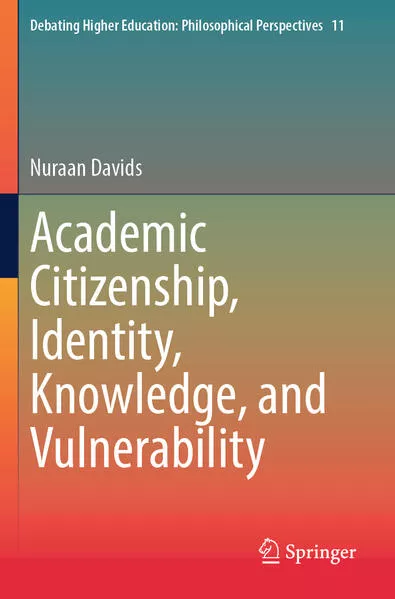
- Publikationen ca: 3
- Fragen & Antworten
Nuraan Davids
Academic Citizenship, Identity, Knowledge, and Vulnerability
This book brings into contestation the idea of academic citizenship as a homogenous and inclusive space. It delves into who academics are and how they come to embody their academic citizenship, if at all. Even when academics hold similar professional standings, their citizenship and implied notions of participation, inclusion, recognition, and belonging are largely pre-determined by their personal identity markers, rather than what they do professionally.
Academic Citizenship, Identity, Knowledge, and Vulnerability
This book brings into contestation the idea of academic citizenship as a homogenous and inclusive space. It delves into who academics are and how they come to embody their academic citizenship, if at all. Even when academics hold similar professional standings, their citizenship and implied notions of participation, inclusion, recognition, and belonging are largely pre-determined by their personal identity markers, rather than what they do professionally.
Academic Citizenship, Identity, Knowledge, and Vulnerability
This book brings into contestation the idea of academic citizenship as a homogenous and inclusive space. It delves into who academics are and how they come to embody their academic citizenship, if at all. Even when academics hold similar professional standings, their citizenship and implied notions of participation, inclusion, recognition, and belonging are largely pre-determined by their personal identity markers, rather than what they do professionally.


